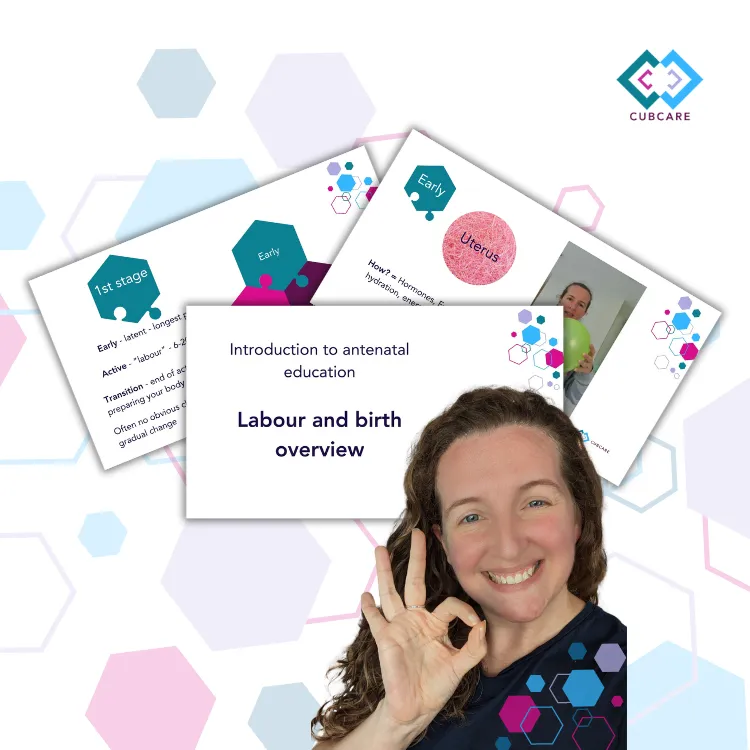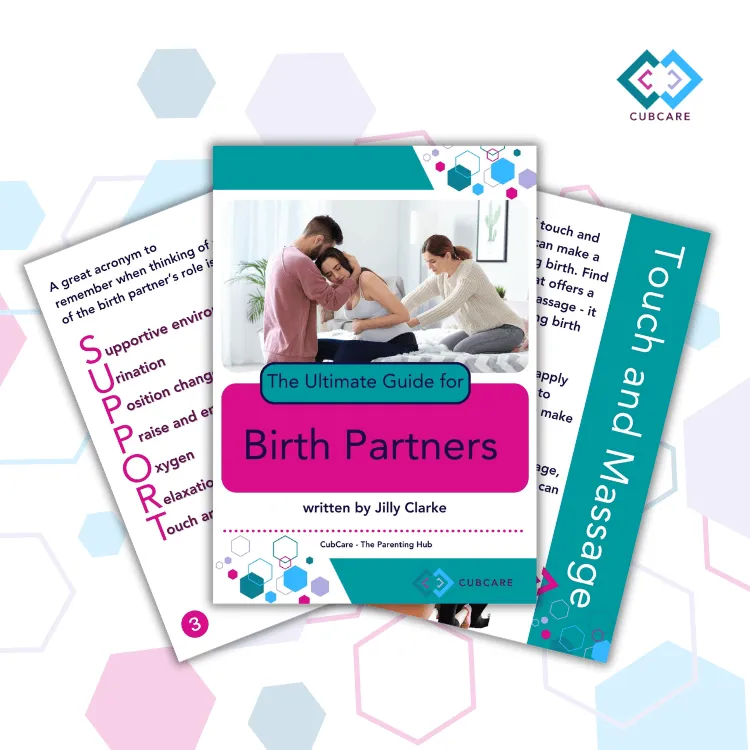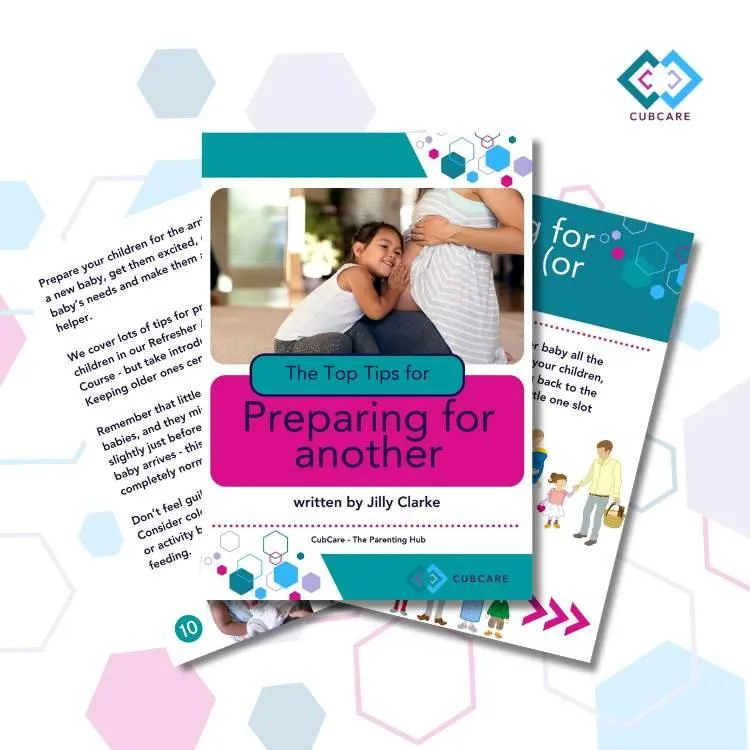We're an award winning Antenatal and Postnatal Education Platform 2025!
(read more here)
CubCare blogs.
From early pregnancy to newborn development.
Advice to help through pregnancy, birth and childhood.
BLOG

Lister Hospital Maternity Statistics - Why it's important to research
“Service users (pregnant people) need to understand the importance of maternity stats. They give an important insight into the situation in that NHS maternity system.” - Jilly
Why checking maternity statistics for the local NHS Maternity Units is important
Are you looking for maternity statistics for Lister Hospital? Wondering if it’s the right place to give birth?
It’s completely understandable to want facts before making decisions about something as significant as birth. Maternity statistics don’t tell the whole story, but they offer a helpful glimpse into how a local service is functioning, what kind of care is typical, and what that might mean for you.
Every month, Lister Hospital Maternity and Neonatal Voices Partnership (MNVP) shares statistics across their Facebook and Instagram pages. They describe these as keepsakes for families—but they also hold real value for people still preparing for birth. And that’s where they become more than numbers.
Understanding these figures early in pregnancy can help you make more informed choices about your care—and, in some cases, avoid outcomes that feel out of step with what you hoped for.
In this post, we’ll look at:
Why maternity statistics matter
How Lister compares to other local hospitals
What this means for your own decisions about place of birth and support
What to do with the data you find

What do I need to do when I find out I am pregnant? And why are maternity statistics needed then?
Once you’ve confirmed your pregnancy, the first step is to book into maternity care. This might mean contacting your GP, but in many areas—including Welwyn Hatfield—you can self-refer directly to your chosen hospital or NHS trust.
At this point, most people choose the hospital closest to home. It feels like the natural next step. But this often happens before you’ve had time to understand the differences between local maternity services—or what type of care might suit you best.
Your first appointment usually happens between 8 and 10 weeks, with a scan arranged for around 11–14 weeks. But if you later decide you’d prefer a different hospital, you’re allowed to transfer your care—even later in pregnancy. It might involve some repeated admin or extra paperwork, but it’s entirely possible.
That’s why looking at maternity statistics early is so important. It helps you build a picture of your options before your choices start to feel set in stone.
Birth place choices for those in Welwyn Hatfield
If you live in Welwyn, Hatfield, Welwyn Garden City, Brookmans Park, Cuffley, Northaw or Potters Bar, your closest maternity unit will likely be Lister Hospital in Stevenage.
Depending on where exactly you live, you might also consider:
Barnet Hospital
Princess Alexandra Hospital in Harlow
The Rosie in Cambridge
UCLH in Central London
Many families in this area attend community midwife appointments at QEII Hospital or local GP surgeries, but go on to give birth elsewhere.
Your choices for giving birth include:
The Midwife-Led Unit (MLU) at Lister
The Consultant-Led Unit (CLU) at Lister
A planned home birth, supported by the local home birth team
A different hospital altogether, if you feel another unit better aligns with your needs
A planned birth with an Independent Midwife
A freebirth - a planned birth without medical assistance
This decision doesn’t have to be made immediately, but it helps to begin looking at the differences—including the statistics—early on.
Place of birth is a key choice for women because where a woman gives birth will likely affect how she gives birth. - A mixed-methods study of women’s birthplace preferences and decisions in England - ScienceDirect
It can be a bit of a pain to transfer your care to another NHS trust after your care has started, particularly later on in pregnancy – but it is possible and it is never too late to transfer. And, although not ideal at all, if you went into labour whilst you were on holiday in a different part of the country for example, a maternity unit wouldn’t turn you away.

Why is it important to research maternity statistics?
Most of us wouldn’t go on holiday or book a restaurant without checking reviews. Birth deserves that same level of attention—if not more.
Maternity statistics are not reviews in the traditional sense. They don’t tell you how supported someone felt, or how kind the staff were. But they can show patterns:
How often labour is induced
How many births end in caesarean
How many people use water for labour or birth
How many people are supported to give birth at home
They also highlight whether certain options are available in practice, not just on paper. If only a handful of births happen in the MLU or pools each month, it’s fair to ask why.
These numbers give you a starting point for conversations with your midwife, and help you understand how your chosen place of birth might shape your experience.
Locally, you can see if there is much difference between different hospitals, and it can help you in your decision making.
The monthly statistics for the whole of the UK is updated on this website Maternity Services Monthly Statistics - NHS England Digital. Alternatively, you can search for them here: The Maternity Services Dashboard

Lister Hospital maternity statistics: What the numbers show
Lister’s MNVP has been publishing monthly statistics throughout 2024 and 2025. Recent data includes:
January 2025: 358 births | 44% spontaneous vaginal births | 42% inductions | 36% caesareans
February 2025: 357 births | 43% spontaneous | 41% inductions | 37% caesareans
March 2025: 353 births | 45% spontaneous | 40% inductions | 35% caesareans
Compared to national averages, Lister’s induction rate is consistently higher. In 2025, NHS England reports an average induction rate of just over 32%, so Lister is around 8–10% above that.
Water births remain low—less than 4% most months—and home birth rates in the area are also relatively low compared to some neighbouring counties.
It doesn’t mean your birth won’t be straightforward or supported—but it does mean it’s worth asking about the culture of the unit you’re booked into.
Lister Hospital CQC report findings
In October 2022, the CQC rated Lister’s maternity service as Inadequate, citing concerns around safety, culture and staffing. By June 2023, a re-inspection found improvements, upgrading the rating to Requires Improvement.
The most recent inspection in November 2023 maintained that “Requires Improvement” status, but noted significant progress in areas like communication and team culture. You can read the full inspection report here: See the initial report CQC report here. See the updated CQC status here.
Whilst this may look like a scary finding, the improvements highlight a commitment to further improvements across the board in local maternity services. It is also important to note that maternity services across the board are looking pretty similar.
This does not mean that the service is not safe, but the inspections found room for improvement. As with Ofsted and schools, there are issues with the methods of inspections too.
But it serves further to highlight how important it is to do research; understand birth and the system you enter into. And to understand that you need to be the most important person in your story – to take control of all the things you can control.
What's the most important thing when choosing where to give birth?
Ultimately, the best place to give birth is the one where you feel informed, respected and safe.
The evidence on place of birth shows that for low-risk pregnancies:
Home birth or MLU birth leads to fewer interventions
CLU birth may lead to more monitoring and medical input
But that only helps if you feel confident in that setting. There’s no “one right choice”—only the best choice for you, at this point in your pregnancy.
You’re allowed to change your mind. You’re allowed to ask more questions. And you’re always allowed to seek support that helps you feel prepared.
What you can do, and how we can help
At CubCare, we don’t just teach you how labour works—we help you understand how your maternity system works. We guide you through your options, show you how to ask for what you need, and help you build the knowledge, strength and confidence to navigate whatever comes your way.
Explore our courses:
Antenatal Course in person – Welwyn Garden City
Antenatal Course online – Access anytime, from anywhere
Refresher Antenatal Course in person – For second-time (or more) parents
Refresher Antenatal Course online – For second-time (or more) parents, access anytime, from anywhere
Our other online Pregnancy, Birth and Parenting courses – For partners who want to feel genuinely helpful and prepared
You don’t need to figure this all out on your own. Whether you’re planning a straightforward birth or weighing up new information, we’re here to support you with the insight and honesty you deserve.
Lister Maternity and Neonatal Voices Partnership birth statistics 2025



Updated July 2025
For families in Welwyn, Hatfield and surrounding areas choosing where and how to give birth.
Easily navigate to our most popular Blog categories
Download our Freebies

Labour and Birth
Watch our introduction to antenatal education webinar, our labour and birth overview - to start your antenatal education journey. Understanding the process, and what you can do to influence it.

Pregnancy Planner
Free Pregnancy Planner to help you prepare for a little one. Prepare your body, your mind, your finances and your home. Get organised, feel good and prepare for an active, positive birth.

Birth Partner Guide
Your ultimate guide to being the best birth partner during pregnancy, birth and recovery. Learn what you need to do, and what you need to learn to be the best birth partner possible.

Expecting Again Guide
Your ultimate guide to preparing for another birth and an extra baby. Our top tips for navigating pregnancy and birth, and helping your older ones to transition into their new role as a big sibling.
Based in Welwyn Hatfield, offering local pregnancy support and doula services across Hertfordshire: St Albans, Hatfield, Welwyn Garden City, Potters Bar, Stevenage, Harpenden, Hitchin, Barnet, Mill Hill and surrounding areas.
Online antenatal and postnatal education available UK-wide.
© Copyright 2025 CubCare The Parenting Hub. CubCare is operated by The Birth and Baby Company Ltd. Company No. 15655287
Privacy Policy | Terms & Conditions | Medical Disclaimer | Inclusivity and Accessibility

